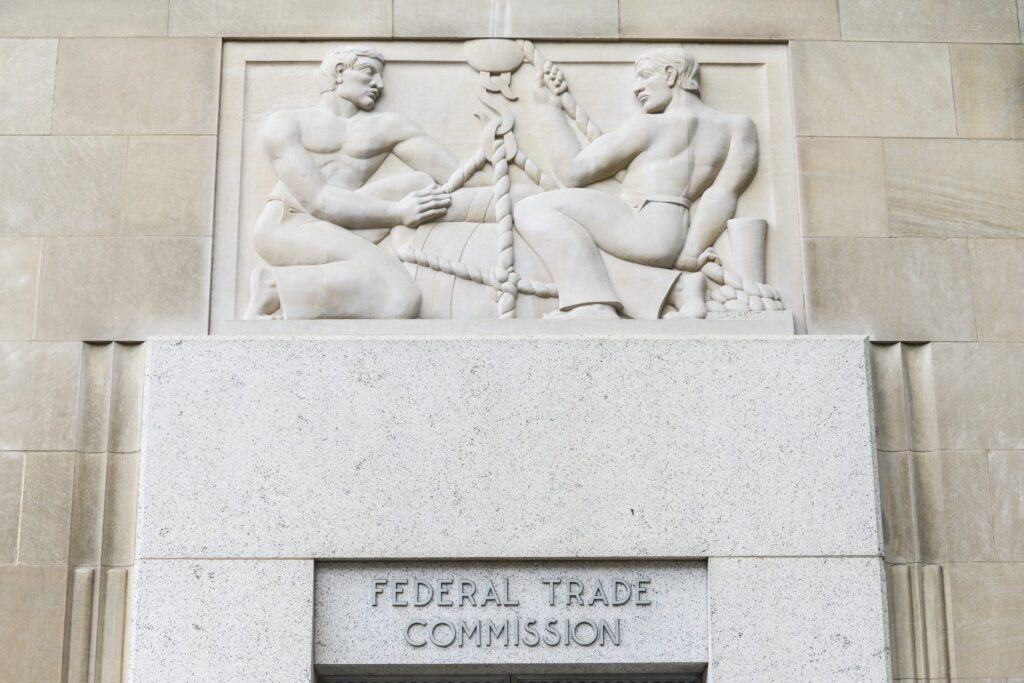The world of cybersecurity regulations can feel complex, but understanding the FTC’s Safeguards Rule is crucial for businesses that collect customer information. The FTC enforces a concept called “reasonable security” through its Safeguards Rule, but how that translates to specific actions depends on the type of information a company collects and how much of it they have.
Here’s a breakdown to help you navigate this essential regulation.
Focus on Customer Data Protection
The FTC Safeguards Rule acts as a shield for customer data. It applies to businesses that handle information like names, addresses, financial details, and even health records.
The “Reasonable Security” Standard
Unlike a rigid rulebook, the FTC emphasizes “reasonable security.” This means taking appropriate measures to safeguard customer information based on three key factors:
- Data Sensitivity: The more sensitive the information (think Social Security numbers or health data), the stronger the security measures needed.
- Business Size: Larger companies with more resources may be expected to implement more robust security programs.
- Security Risks: Businesses should consider the potential impact of a data breach and tailor their security accordingly.
Do You Need to Comply?
Not all businesses fall under the Safeguards Rule. Before we can answer this question, there are a couple definitions you need to understand. The Safeguards Rule applies to most financial businesses, even some you might not consider traditional finance institutions. The rule covers companies involved in activities like lending, money transfers, or financial advising (REALTORS®, mortgage brokers, account servicers, check cashers, wire transferors, collection agencies, credit counselors and other financial advisors). There are some exceptions, but it’s best to consult the official definition and examples if you’re unsure about your business’s status. Keep in mind, your business may have transformed over time and become subject to the rule even if it wasn’t originally. To see if you fall within these rules see this reference for Section 314.2(h).
- Financial Institutions: An institution that is significantly engaged in financial activities, or significantly engaged in activities incidental to such financial activities, is a financial institution
- Definitions As Provided By FTC: https://www.ecfr.gov/current/title-16/chapter-I/subchapter-C/part-314#314.2

Preparing for “Reasonable Security”
While the specifics may vary, here are steps to ensure your business meets the FTC’s standards:
- Know Your Data: Inventory the customer data you collect, store, and access. This helps prioritize security measures based on sensitivity.
- Develop a Data Security Program: A documented program demonstrates your commitment to data protection. It should outline:
- Administrative Safeguards: Policies for employee access control, password management, data disposal, and incident response plans.
- Technical Safeguards: Measures like data encryption, firewalls to monitor network traffic, and regular system updates.
- Physical Safeguards: Physical security measures to protect data storage systems, including restricted server room access and proper electronic device disposal.
- Regular Risk Assessments: The FTC emphasizes ongoing risk assessments to identify potential security threats and system vulnerabilities. This helps adapt your security program to evolving threats.
- Stay Informed: The FTC and industry leaders regularly update cybersecurity best practices. Subscribe to FTC updates and follow industry standards.
- Seek Expert Guidance: If you have questions about compliance or need help developing a data security program, consider consulting a lawyer specializing in data security and privacy law.

What Happens If You Are Not Compliant?
The seriousness of following the rule can be understood through the potential risks:
- Legal Ramifications: The FTC can take legal action against non-compliant businesses, which could involve fines or penalties.
- Security Breaches: Not having strong safeguards makes your business more vulnerable to cyberattacks, which can lead to data breaches and expose sensitive customer information.
- Reputational Damage: A data breach or security incident can severely damage your business reputation and erode customer trust.
- Financial Losses: Data breaches can lead to financial losses for your business, including costs associated with data recovery, notification, and potential lawsuits.
Remember: “Reasonable security” is an ongoing process. By continuously assessing, adapting, and staying informed, you can effectively protect customer data and demonstrate your commitment to cybersecurity.
Resources:
FTC Safeguards Rule: What Your Business Needs to Know: https://www.ftc.gov/business-guidance/resources/ftc-safeguards-rule-what-your-business-needs-know
Data Security: https://www.ftc.gov/business-guidance/privacy-security/gramm-leach-bliley-act


